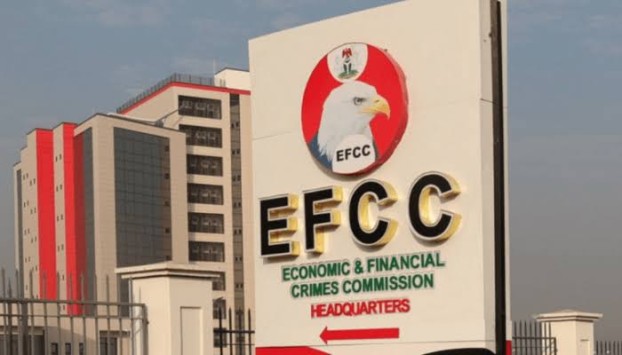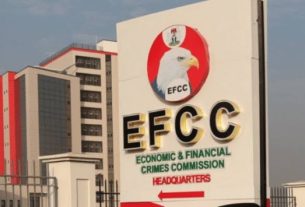The Economic and Financial Crimes Commission (EFCC) has long been at the forefront of Nigeria’s fight against corruption. However, its current anti-graft posture requires a significant paradigm shift to address the deeply entrenched corruption within our dear nation Nigeria and meet the pressing challenges of a rapidly evolving landscape. The key areas where these transformations are imperative are multi-faceted.
The most pivotal outlook is selective prosecution to holistic justice as it executes the key functions of it’s mandate. The current Issue that’s a recurring decimal and one of major criticisms of the EFCC is that its actions are sometimes perceived as selective, with accusation that it targets political opponents or less powerful individuals while sparing others with strong political backing.
In addition to this germane issue is the quest for paradigm shift to regain credibility and public trust, the EFCC must adopt an impartial, non-partisan approach to fighting graft. This means pursuing cases based on clear evidence of wrongdoing, watertight submissions cast in stone and steel, irrespective of political affiliation, status, or influence. Institutional reforms that ensure greater transparency in decision-making and case selection would go a long way in dispelling perceptions of bias.
In addition, it needs to morph from reactionary to preventive anti-graft measures. The EFCC has traditionally been reactive in its locomotion in public domain, focusing on investigations and prosecutions after financial crimes have occurred. This approach has led to extensive backlogs, delays in prosecution, and limited success in deterring corruption. It’s germane to embark on a paradigm shift at this rate. The preventive anti-graft strategy would focus on addressing systemic weaknesses that allow corruption to thrive. This could involve greater emphasis on risk assessments, strengthening public institutions, promoting good governance, and ensuring stricter compliance with existing laws. Collaborating with other governmental bodies, such as the Bureau of Public Procurement (BPP), could help tighten loopholes in public finance management.
Furthermore, Increased autonomy and Insulation from political influence will do a lot of good for it’s existence. The EFCC’s independence has been compromised at times due to political interference in real and imagined terms depending on whatever spectrum a third party choose to run with. This not only hinders the commission’s work but also undermines public confidence in its ability to pursue cases without external pressure.
Going forward, for the EFCC to effectively combat high-level graft, it must operate as an independent body, free from executive and legislative meddling. This can be achieved by ensuring that the EFCC’s leadership appointments are transparent, that the commission has secure funding independent of the executive, and that EFCC officials have security of tenure.
The usual suspects revolve around the focus on corruption cases around politically exposed persons (PEP), while the EFCC has had success in prosecuting some high-profile individuals, many of its cases have involved smaller-scale fraud that court unnecessary public attention such as commando like invasion of hotels, residential pads, lounges amongst others or less influential figures, which fails to tackle the larger corruption networks that undermine governance.
Lest we forget, the EFCC must prioritize high-impact cases, especially those involving (PEPs) and top-level officials involved in grand heist like sleaze. These are the cases that, if successfully prosecuted, would send a strong deterrent message and have a significant impact on curbing the pervasive culture of impunity. The EFCC also needs to focus on systemic corruption in sectors like oil and gas, public procurement, and banking.
Stronger international collaboration on crucial touchpoint of corruption, money laundering, and financial crimes are increasingly transnational, with illicit funds being transferred to foreign accounts and investments made abroad. To address these windows, the EFCC must build and sustain stronger partnerships with international anti-corruption agencies. This includes collaborating with financial intelligence units, law enforcement in foreign jurisdictions, and organizations like Interpol and the Financial Action Task Force (FATF). Such alliances would improve Nigeria’s ability to track stolen assets, freeze illicit funds, and extradite offenders.
The meat of this submission will be incomplete without harping on the urgency for EFCC to consolidate on it’s prosecution to asset recovery and transparency. While the EFCC has made significant asset recoveries, there is often a lack of transparency about how these assets are managed, and the public does not always see the benefits of recovered funds. In all fairness, the anti-grafts agency donation or concession of fifty billion Naira to Nigerian Education Loan Fund (NELFUND) is a welcome development even though it’s still up for debate whether this initiative passed through the scrutiny of legislative oversight.
This new posture would focus more on asset recovery and transparent management of recovered assets, ensuring that they are returned to the public treasury or used in ways that directly benefit Nigerian citizens. Additionally, greater public reporting on recovered assets, how they are utilized, and what impact they have on public infrastructure and services would improve trust in the EFCC’s work.
As a parting shot, leveraging technology for enhanced anti-corruption operations is a must in the current digital, space and AI age. Corruption schemes are becoming increasingly sophisticated, utilizing digital platforms, crypto currency, and complex financial structures. The EFCC’s tools and capacity are often insufficient to track these new forms of financial crime. The EFCC must invest in technological infrastructure and training to counter these emerging threats. This includes developing systems for real-time tracking of financial transactions, using big data analytics to detect suspicious patterns, and training investigators on modern fraud and financial forensics. Technology can also be used to create transparent, easily accessible systems for the public to report corruption and track the progress of cases.
In a nutshell, engagement with Civil Society (CSO’s) and whistleblower protection is the most appropriate way to go. The EFCC’s relationship with civil society has been limited, and there are inadequate protections and incentives for whistleblowers who expose corrupt activities. A more inclusive anti-corruption framework would see the EFCC collaborate closely with civil CSO’s, which play a crucial role in monitoring government transparency and exposing corruption. Strengthening the whistleblower policy by offering better legal protections and rewards to those who expose graft would also empower citizens to take a more active role in combating corruption.
The kernel of this lucid treatise is hinged on reforming the judicial process for efficient prosecution. The slow pace of Nigeria’s judicial system has hampered the EFCC’s efforts. Corruption cases can drag on for years, resulting in public frustration and diminishing the deterrent effect of prosecutions. The EFCC must work with the judiciary to introduce fast-track courts specifically for corruption cases. Reforms to limit frivolous appeals, reduce delays, and impose stricter timelines for corruption-related trials would enhance the overall effectiveness of the anti-corruption fight.
The EFCC’s current anti-graft posture as it stands now, while crucial, is not sufficient to tackle the deeply rooted corruption that hampers Nigeria’s socio economic development. A paradigm shift is needed to create an agency that is independent, technologically advanced, preventive in its approach, and focused on high-impact cases. Through international collaboration, institutional reform, and greater transparency, the EFCC can transform into a more effective instrument in Nigeria’s fight against corruption.
Ayoola Ajanaku is a Communications and Advocacy Specialist








